Discover Orthodox Conundrum
Orthodox Conundrum

Orthodox Conundrum
Author: Scott Kahn
Subscribed: 232Played: 12,737Subscribe
Share
©️2024
Description
The Orthodox Conundrum is a forum in which we look honestly at the Orthodox Jewish community, identifying what works well and what does not, so that, through an honest accounting, we can find solutions that will be successful. We will examine some of the major issues that affect the Orthodox world, without exaggeration, whitewashing, or pretending that they don't exist. Our hope is that the Orthodox Conundrum will spark wider discussion that will enable Orthodox Judaism to continue moving forward in the areas at which it excels, and to rectify the areas that need improvement.
297 Episodes
Reverse
In recent weeks we have watched something many of us hoped we would not see in the United States: openly anti-Zionist and even openly antisemitic voices moving from the margins into the mainstream. Zohran Mamdani's victory in New York raises the chilling possibility that hostility to Israel is now an electoral asset. At the same time, parts of the American right are flirting with figures like Nick Fuentes, a Holocaust denier who says Jews do not belong in Western civilization. To make sense of this moment, I spoke with Jonathan Greenblatt, CEO and National Director of the Anti Defamation League. We discussed why anti-Zionism is, in most cases, antisemitism; what Mamdani's rise should signal to American Jews; why some university leaders defend the indefensible; where the Jewish community itself has made mistakes in fighting antisemitism; how to confront hatred coming from both sides of the political spectrum without turning it into a partisan game; and more. This is a blunt, timely, and deeply important conversation for anyone who cares about Jewish security and moral clarity in public life. Check out Orthodox Conundrum Commentary on Substack and get your free subscription by going to https://scottkahn.substack.com/. We're excited to announce that we at Jewish Coffee House are continuing to expand the conversation by bringing you—our listeners—into the mix. Introducing JCH Q&A, an exciting new podcast where listener-submitted questions are answered in a thoughtful, honest, and engaging way. We plan to dive deep into your pressing hashkafic, political, and philosophical questions. We will address the ideas that matter, the issues that challange us, and the topics that spark real curiosity. To submit a question for our first episode, you must be a member of the JCH Podcast WhatsApp Community. (Join here.) No question is off limits, and all submissions will remain anonymous. We're looking forward to answering your questions on our first episode! Please listen to and share this podcast, and let us know what you think on the Orthodox Conundrum Discussion Group on Facebook (https://www.facebook.com/groups/432020081498108). Thanks to all of our Patreon subscribers, who have access to bonus JCH podcasts, merch, and more - we appreciate your help, and hope you really enjoy the extras! Visit the JCH Patreon site at https://www.patreon.com/jewishcoffeehouse. Check out https://jewishcoffeehouse.com/ for the Orthodox Conundrum and other great podcasts, and remember to subscribe to them on your favorite podcast provider. Also visit https://www.jchpodcasts.com/ to learn all about creating your own podcast. Music: "Happy Rock" by bensound.com
Is Jewish unity even possible? In this urgent episode Rav Yosef Zvi Rimon faces the hardest questions raised by the draft crisis and by the widening gaps between Charedi, Dati Leumi, Modern Orthodox, Traditional, and Secular Jews. He explains why unity is not a slogan but a practical necessity and religious obligation with real consequences for security, community, and our shared future. With clarity and empathy he maps a path for principled disagreement, mutual responsibility, and practical steps that families, shuls, and schools can take right now. If you are tired of talking points and want a serious plan for healing rifts while staying true to conviction, this conversation is for you. Check out Orthodox Conundrum Commentary on Substack and get your free subscription by going to https://scottkahn.substack.com/. We're excited to announce that we at Jewish Coffee House are continuing to expand the conversation by bringing you—our listeners—into the mix. Introducing JCH Q&A, an exciting new podcast where listener-submitted questions are answered in a thoughtful, honest, and engaging way. We plan to dive deep into your pressing hashkafic, political, and philosophical questions. We will address the ideas that matter, the issues that challange us, and the topics that spark real curiosity. To submit a question for our first episode, you must be a member of the JCH Podcast WhatsApp Community. (Join here.) No question is off limits, and all submissions will remain anonymous. We're looking forward to answering your questions on our first episode! Please listen to and share this podcast, and let us know what you think on the Orthodox Conundrum Discussion Group on Facebook (https://www.facebook.com/groups/432020081498108). Thanks to all of our Patreon subscribers, who have access to bonus JCH podcasts, merch, and more - we appreciate your help, and hope you really enjoy the extras! Visit the JCH Patreon site at https://www.patreon.com/jewishcoffeehouse. Check out https://jewishcoffeehouse.com/ for the Orthodox Conundrum and other great podcasts, and remember to subscribe to them on your favorite podcast provider. Also visit https://www.jchpodcasts.com/ to learn all about creating your own podcast. Music: "Happy Rock" by bensound.com
What does the morning after really look like... when the dawn reveals not only light, but rubble and work? In this deeply personal conversation, Scott and Dr. Erica Brown ask how we craft a vision of where we're going when optimism feels naïve, unity is fragile, and joy and grief insist on sharing the same space. Drawing on Rabbi Sacks's distinction between optimism and hope, they explore how to build active hope through autonomy, giving, and purpose. They define Jewish unity as purposefulness rather than groupthink, wrestle with isolation and rising antisemitism in the diaspora, and consider Rav Kook's "songs" of soul, people, humanity, and world in a time when many Jews feel pushed out of humanity's choir. Along the way, Scott reflects on grandparenting amid loss; Erica introduces the idea of "prophetic social justice" and the power of a "destination postcard"—a concrete picture of a better future; and together they share practical ways families can bind their children's wounds through volunteering and virtue. This is the morning after—honest, unsentimental, and stubbornly hopeful. Subscribe to Dr. Erica Brown's wonderful new Substack, Sacred Stamina, by clicking here. Check out Orthodox Conundrum Commentary on Substack and get your free subscription by going to https://scottkahn.substack.com/. We're excited to announce that we at Jewish Coffee House are continuing to expand the conversation by bringing you—our listeners—into the mix. Introducing JCH Q&A, an exciting new podcast where listener-submitted questions are answered in a thoughtful, honest, and engaging way. We plan to dive deep into your pressing hashkafic, political, and philosophical questions. We will address the ideas that matter, the issues that challange us, and the topics that spark real curiosity. To submit a question for our first episode, you must be a member of the JCH Podcast WhatsApp Community. (Join here.) No question is off limits, and all submissions will remain anonymous. We're looking forward to answering your questions on our first episode! Please listen to and share this podcast, and let us know what you think on the Orthodox Conundrum Discussion Group on Facebook (https://www.facebook.com/groups/432020081498108). Thanks to all of our Patreon subscribers, who have access to bonus JCH podcasts, merch, and more - we appreciate your help, and hope you really enjoy the extras! Visit the JCH Patreon site at https://www.patreon.com/jewishcoffeehouse. Check out https://jewishcoffeehouse.com/ for the Orthodox Conundrum and other great podcasts, and remember to subscribe to them on your favorite podcast provider. Also visit https://www.jchpodcasts.com/ to learn all about creating your own podcast. Music: "Happy Rock" by bensound.com
This episode is dedicated to the complete recovery of יהונתן איתן בן בת שבע ברכה. How do we move from private anguish to collective strength? In this deeply personal and wide-ranging conversation, Rabbi Leo Dee shares the story of the day his wife and two daughters were murdered, and the seven-facet framework he built to keep living with faith and purpose. We walk through Family, Friends, Fitness, Frumkeit (spiritual life), Function (purpose), Finances (trust and control), and Fun (simcha/growth)... first as practices for an individual in pain, and then as a national toolkit for a people living through ongoing trauma. Instead of drilling into tactics, we explore the principles that make the Seven Facets portable, from the home to the community to the nation: how language and presence matter, how practice can carry belief, how purposeful action restores dignity, how trusting what we can't control quiets anxiety, and how measured joy can coexist with memory. This episode is for anyone who refuses to let grief have the last word—and wants concrete, Torah-true ways to help themselves, their family, and Am Yisrael heal. Click here to order Rabbi Dee's wonderful new book, The Seven Facets of Healing. Check out Orthodox Conundrum Commentary on Substack and get your free subscription by going to https://scottkahn.substack.com/. We're excited to announce that we at Jewish Coffee House are continuing to expand the conversation by bringing you—our listeners—into the mix. Introducing JCH Q&A, an exciting new podcast where listener-submitted questions are answered in a thoughtful, honest, and engaging way. We plan to dive deep into your pressing hashkafic, political, and philosophical questions. We will address the ideas that matter, the issues that challange us, and the topics that spark real curiosity. To submit a question for our first episode, you must be a member of the JCH Podcast WhatsApp Community. (Join here.) No question is off limits, and all submissions will remain anonymous. We're looking forward to answering your questions on our first episode! Please listen to and share this podcast, and let us know what you think on the Orthodox Conundrum Discussion Group on Facebook (https://www.facebook.com/groups/432020081498108). Thanks to all of our Patreon subscribers, who have access to bonus JCH podcasts, merch, and more - we appreciate your help, and hope you really enjoy the extras! Visit the JCH Patreon site at https://www.patreon.com/jewishcoffeehouse. Check out https://jewishcoffeehouse.com/ for the Orthodox Conundrum and other great podcasts, and remember to subscribe to them on your favorite podcast provider. Also visit https://www.jchpodcasts.com/ to learn all about creating your own podcast. Music: "Happy Rock" by bensound.com
Charlie Kirk's assassination is a shocking, tragic act of violence. Murder is a desecration of the image of God, full stop. We condemn it unequivocally, and we pray for comfort for his family and for all who were harmed. At the same time, Charlie Kirk was a complicated public figure. He was outspokenly pro-Israel and often advocated for Jewish safety; he also voiced criticisms of Israel's current government. He advanced positions that many in the Orthodox world consider essential, and others consider deeply problematic. He defended Israel vigorously, and he also gave a platform to voices widely regarded as openly antisemitic. All of that can be true at once, and ignoring any part of that picture does our community no favors. In the days since his death, we've seen Orthodox individuals and organizations release statements ranging from restrained condolences to sweeping praise that some would call over-the-top. Today we're going to step back and ask, dispassionately and honestly: what should Charlie Kirk's legacy be for Orthodox Jews? This is neither a eulogy nor an indictment. Our aim is to slow the rush to hot takes and consider how a mature community remembers someone who meant very different things to different people. I have three guests on today's episode: Rabbi Yitzchok Adlerstein, Rabbi Benjamin Kelsen, and Rabbi Pesach Wolicki. Together we'll explore where they agree, where they diverge, and what that means for real life: how institutions and leaders speak publicly, and how we keep our disagreements from corroding relationships. Above all, we'll try to conduct this conversation in a way that is truthful, proportionate, and humane. Check out Orthodox Conundrum Commentary on Substack and get your free subscription by going to https://scottkahn.substack.com/. We're excited to announce that we at Jewish Coffee House are continuing to expand the conversation by bringing you—our listeners—into the mix. Introducing JCH Q&A, an exciting new podcast where listener-submitted questions are answered in a thoughtful, honest, and engaging way. We plan to dive deep into your pressing hashkafic, political, and philosophical questions. We will address the ideas that matter, the issues that challange us, and the topics that spark real curiosity. To submit a question for our first episode, you must be a member of the JCH Podcast WhatsApp Community. (Join here.) No question is off limits, and all submissions will remain anonymous. We're looking forward to answering your questions on our first episode! Please listen to and share this podcast, and let us know what you think on the Orthodox Conundrum Discussion Group on Facebook (https://www.facebook.com/groups/432020081498108). Thanks to all of our Patreon subscribers, who have access to bonus JCH podcasts, merch, and more - we appreciate your help, and hope you really enjoy the extras! Visit the JCH Patreon site at https://www.patreon.com/jewishcoffeehouse. Check out https://jewishcoffeehouse.com/ for the Orthodox Conundrum and other great podcasts, and remember to subscribe to them on your favorite podcast provider. Also visit https://www.jchpodcasts.com/ to learn all about creating your own podcast. Music: "Happy Rock" by bensound.com
Is it possible—maybe even Jewish—to be angry at God? From Abraham's challenge at Sodom to Job's cries of despair, Tanach is filled with voices that confront the Divine. But what does that mean for us today, when we struggle with personal tragedy, global antisemitism, and the ongoing pain of the seemingly endless war against Hamas? In this wide-ranging conversation on the Orthodox Conundrum, Scott Kahn speaks with Rabbi Dr. Raphael Zarum, Dean of the London School of Jewish Studies, about whether anger at God is heresy or a profound act of faith. Along the way, they discuss biblical protest, repentance, the Shoah, the morality of Israel's current war, the themes of Rosh Hashanah, contemporary crises, and whether confronting God can actually bring us closer to Him. We're excited to announce that we at Jewish Coffee House are continuing to expand the conversation by bringing you—our listeners—into the mix. Introducing JCH Q&A, an exciting new podcast where listener-submitted questions are answered in a thoughtful, honest, and engaging way. We plan to dive deep into your pressing hashkafic, political, and philosophical questions. We will address the ideas that matter, the issues that challange us, and the topics that spark real curiosity. To submit a question for our first episode, you must be a member of the JCH Podcast WhatsApp Community. (Join here.) No question is off limits, and all submissions will remain anonymous. We're looking forward to answering your questions on our first episode! Check out Orthodox Conundrum Commentary on Substack and get your free subscription by going to https://scottkahn.substack.com/. Please listen to and share this podcast, and let us know what you think on the Orthodox Conundrum Discussion Group on Facebook (https://www.facebook.com/groups/432020081498108). Thanks to all of our Patreon subscribers, who have access to bonus JCH podcasts, merch, and more - we appreciate your help, and hope you really enjoy the extras! Visit the JCH Patreon site at https://www.patreon.com/jewishcoffeehouse. Check out https://jewishcoffeehouse.com/ for the Orthodox Conundrum and other great podcasts, and remember to subscribe to them on your favorite podcast provider. Also visit https://www.jchpodcasts.com/ to learn all about creating your own podcast. Music: "Happy Rock" by bensound.com
This episode is partially a detective story, partially an analysis of daring ideas, and partially an invitation to discover new methodolgies of confronting challenges to Orthodox Judaism. Rav Kook drafted L'Nevuchei HaDor over a century ago—then the manuscript largely disappeared from view, resurfaced piecemeal, and sparked debates about redaction and "censorship." In this follow-up to our popular episode with Professor Marc Shapiro, I speak with Rabbi Aryeh Sklar, translator of the new English edition, to unpack both the history of the text (why it was sidelined, what changed between versions, and who may have been protecting whom) and the ideas that make it urgent now: how Rav Kook navigates tensions between moral intuition and Torah; his approach to challenges from writings of the ancient Near East; why heresy can refine faith; his respectful stance toward other religions; and much more. As we approach Rosh Hashanah and Yom Kippur, we ask what this early, daring Rav Kook can offer a polarized 2025 about creative teshuva, intellectual honesty, and religious confidence without fear. Check out the wonderful new podcast, Women Talking Mitzvot, co-produced by Deracheha.org and Beit Midrash Migdal Oz, with Rabbanit Shayna Goldberg and Rabbanit Dr. Yosefa Fogel Wruble. To listen, click here (Apple) or here (Spotify). Exclusive deal for Orthodox Conundrum listeners: code perplexed20 will give 20% off if they pre-order L'Nevuchei HaDor through kodeshpress.com. We're excited to announce that we at Jewish Coffee House are continuing to expand the conversation by bringing you—our listeners—into the mix. Introducing JCH Q&A, an exciting new podcast where listener-submitted questions are answered in a thoughtful, honest, and engaging way. We plan to dive deep into your pressing hashkafic, political, and philosophical questions. We will address the ideas that matter, the issues that challange us, and the topics that spark real curiosity. To submit a question for our first episode, you must be a member of the JCH Podcast WhatsApp Community. (Join here.) No question is off limits, and all submissions will remain anonymous. We're looking forward to answering your questions on our first episode! Check out Orthodox Conundrum Commentary on Substack and get your free subscription by going to https://scottkahn.substack.com/. Please listen to and share this podcast, and let us know what you think on the Orthodox Conundrum Discussion Group on Facebook (https://www.facebook.com/groups/432020081498108). Thanks to all of our Patreon subscribers, who have access to bonus JCH podcasts, merch, and more - we appreciate your help, and hope you really enjoy the extras! Visit the JCH Patreon site at https://www.patreon.com/jewishcoffeehouse. Check out https://jewishcoffeehouse.com/ for the Orthodox Conundrum and other great podcasts, and remember to subscribe to them on your favorite podcast provider. Also visit https://www.jchpodcasts.com/ to learn all about creating your own podcast. Music: "Happy Rock" by bensound.com
As one 929 cycle ends and the next begins, Scott talks with Rabbi Benny Lau—founder of 929—about why the project started, what it hopes to change in Jewish life, and what a shared, chapter-a-day cadence can build across communities. They also tackle the harder questions: the risks of using Tanach as a direct guidebook without the mediating lens of the Oral Tradition, how to engage ethically with challenging passages, and where pluralism meets red lines. Practical takeaways included: how beginners can start this week, and what to do when you fall behind. Whether you're all-in on 929 or cautious about it, this episode is about reading Tanach deeply—and responsibly. Check out the wonderful new podcast, Women Talking Mitzvot, co-produced by Deracheha.org and Beit Midrash Migdal Oz, with Rabbanit Shayna Goldberg and Rabbanit Dr. Yosefa Fogel Wruble. To listen, click here (Apple) or here (Spotify). We're excited to announce that we at Jewish Coffee House are continuing to expand the conversation by bringing you—our listeners—into the mix. Introducing JCH Q&A, an exciting new podcast where listener-submitted questions are answered in a thoughtful, honest, and engaging way. We plan to dive deep into your pressing hashkafic, political, and philosophical questions. We will address the ideas that matter, the issues that challange us, and the topics that spark real curiosity. To submit a question for our first episode, you must be a member of the JCH Podcast WhatsApp Community. (Join here.) No question is off limits, and all submissions will remain anonymous. We're looking forward to answering your questions on our first episode! Check out Orthodox Conundrum Commentary on Substack and get your free subscription by going to https://scottkahn.substack.com/. Please listen to and share this podcast, and let us know what you think on the Orthodox Conundrum Discussion Group on Facebook (https://www.facebook.com/groups/432020081498108). Thanks to all of our Patreon subscribers, who have access to bonus JCH podcasts, merch, and more - we appreciate your help, and hope you really enjoy the extras! Visit the JCH Patreon site at https://www.patreon.com/jewishcoffeehouse. Check out https://jewishcoffeehouse.com/ for the Orthodox Conundrum and other great podcasts, and remember to subscribe to them on your favorite podcast provider. Also visit https://www.jchpodcasts.com/ to learn all about creating your own podcast. Music: "Happy Rock" by bensound.com
When a child shares something deeply personal about his or her sexual orientation, Orthodox parents can feel love, concern, and uncertainty all at once. In this conversation, Rabbi Yakov Horowitz reflects on what he's learned working with families and communal leaders: how to approach the first conversations, which words can prevent hurt, and where halacha and mesorah guide our choices. We also consider what he's heard from senior rabbinic figures, how different communities navigate these moments, and what hope might look like over time. This is a tender, honest discussion meant to help listeners think carefully, speak gently, and consider their next steps with dignity—whatever they may be. Check out Tehillim Unveiled with Ari Levisohn and Rav Jeremy Tibbetts on Apple Podcasts or on Spotify - with a new three-part series on Tehillim 27, L'David Hashem Ori, dropping just in time for Elul! To contact Kesher Families, click here. Follow Rabbi Yakov Horowitz on Instagram - @yakovhorowitz and @brightbeginningsforum. We're excited to announce that we at Jewish Coffee House are continuing to expand the conversation by bringing you—our listeners—into the mix. Introducing JCH Q&A, an exciting new podcast where listener-submitted questions are answered in a thoughtful, honest, and engaging way. We plan to dive deep into your pressing hashkafic, political, and philosophical questions. We will address the ideas that matter, the issues that challange us, and the topics that spark real curiosity. To submit a question for our first episode, you must be a member of the JCH Podcast WhatsApp Community. (Join here.) No question is off limits, and all submissions will remain anonymous. We're looking forward to answering your questions on our first episode! Check out Orthodox Conundrum Commentary on Substack and get your free subscription by going to https://scottkahn.substack.com/. Please listen to and share this podcast, and let us know what you think on the Orthodox Conundrum Discussion Group on Facebook (https://www.facebook.com/groups/432020081498108). Thanks to all of our Patreon subscribers, who have access to bonus JCH podcasts, merch, and more - we appreciate your help, and hope you really enjoy the extras! Visit the JCH Patreon site at https://www.patreon.com/jewishcoffeehouse. Check out https://jewishcoffeehouse.com/ for the Orthodox Conundrum and other great podcasts, and remember to subscribe to them on your favorite podcast provider. Also visit https://www.jchpodcasts.com/ to learn all about creating your own podcast. Music: "Happy Rock" by bensound.com
Why do so many young Modern Orthodox and National Religious Jews embrace the community but drift from halacha? In this episode of Orthodox Conundrum, Rabbi David Stav, head of Tzohar, joins Scott to confront the growing gap between identity and observance. Together they tackle the hard questions: Are we teaching halacha in ways that feel lifeless and irrelevant? Has secular society — from college to army service to technology — reshaped how youth see mitzvot? And most importantly, how can parents and educators reignite passion for Torah and halacha, showing a new generation that Jewish law is not just obligation, but a path to joy, meaning, and belonging? Check out the wonderful new podcast, Women Talking Mitzvot, co-produced by Deracheha.org and Beit Midrash Migdal Oz, with Rabbanit Shayna Goldberg and Rabbanit Dr. Yosefa Fogel Wruble. To listen, click here (Apple) or here (Spotify). We're excited to announce that we at Jewish Coffee House are continuing to expand the conversation by bringing you—our listeners—into the mix. Introducing JCH Q&A, an exciting new podcast where listener-submitted questions are answered in a thoughtful, honest, and engaging way. We plan to dive deep into your pressing hashkafic, political, and philosophical questions. We will address the ideas that matter, the issues that challange us, and the topics that spark real curiosity. To submit a question for our first episode, you must be a member of the JCH Podcast WhatsApp Community. (Join here.) No question is off limits, and all submissions will remain anonymous. We're looking forward to answering your questions on our first episode! Check out Orthodox Conundrum Commentary on Substack and get your free subscription by going to https://scottkahn.substack.com/. Please listen to and share this podcast, and let us know what you think on the Orthodox Conundrum Discussion Group on Facebook (https://www.facebook.com/groups/432020081498108). Thanks to all of our Patreon subscribers, who have access to bonus JCH podcasts, merch, and more - we appreciate your help, and hope you really enjoy the extras! Visit the JCH Patreon site at https://www.patreon.com/jewishcoffeehouse. Check out https://jewishcoffeehouse.com/ for the Orthodox Conundrum and other great podcasts, and remember to subscribe to them on your favorite podcast provider. Also visit https://www.jchpodcasts.com/ to learn all about creating your own podcast. Music: "Happy Rock" by bensound.com
From biblical lions to the bizarre "Zionist crocodile plot," Israel's wildlife tells a story that shatters modern anti-Israel myths. In his new book Lions of Zion, Rabbi Dr. Natan Slifkin reveals how the animals of the Land of Israel — past and present — reflect the Jewish people's deep, indigenous connection to their homeland. Scott and Rabbi Slifkin tackle false narratives about "settler colonialism," "greenwashing," and cultural appropriation, and explore how creatures like sunbirds, jackals, and even poppies have been weaponized in the propaganda war against Israel. This eye-opening conversation blends Bible, zoology, and politics to show that in Israel, even the animals have a story to tell. To order The Lions of Zion: Biblical Natural History and the Significance of Israel, click here. We're excited to announce that we at Jewish Coffee House are continuing to expand the conversation by bringing you—our listeners—into the mix. Introducing JCH Q&A, an exciting new podcast where listener-submitted questions are answered in a thoughtful, honest, and engaging way. We plan to dive deep into your pressing hashkafic, political, and philosophical questions. We will address the ideas that matter, the issues that challange us, and the topics that spark real curiosity. To submit a question for our first episode, you must be a member of the JCH Podcast WhatsApp Community. (Join here.) No question is off limits, and all submissions will remain anonymous. We're looking forward to answering your questions on our first episode! Check out Orthodox Conundrum Commentary on Substack and get your free subscription by going to https://scottkahn.substack.com/. Please listen to and share this podcast, and let us know what you think on the Orthodox Conundrum Discussion Group on Facebook (https://www.facebook.com/groups/432020081498108). Thanks to all of our Patreon subscribers, who have access to bonus JCH podcasts, merch, and more - we appreciate your help, and hope you really enjoy the extras! Visit the JCH Patreon site at https://www.patreon.com/jewishcoffeehouse. Check out https://jewishcoffeehouse.com/ for the Orthodox Conundrum and other great podcasts, and remember to subscribe to them on your favorite podcast provider. Also visit https://www.jchpodcasts.com/ to learn all about creating your own podcast. Music: "Happy Rock" by bensound.com
As we approach Tisha B'Av — a day that mourns the devastating consequences of internal strife and baseless hatred — we must ask: is there a Torah model for constructive conflict resolution? Rabbi Alex Israel joins Scott to explore a striking example in Bamidbar chapter 32, where Moses engages the tribes of Reuben and Gad in what Rabbi Jonathan Sacks called, "a model illustration of positive negotiation and conflict resolution." What does this biblical conversation teach us about how to mediate conflict, preserve unity, and build a stronger community — even when we disagree? Scott and Rabbi Israel then apply these lessons to modern conflicts that divide the Jewish people in Israel and around the world. This episode offers a timely and hopeful message: disagreement doesn't have to lead to division, and conflict can become a source of growth — if we learn to listen, negotiate, and speak with respect. Check out the Tehillim Unveiled Podcast! Their episode on Tehillim 89 is especially relevant in the days leading up to Tisha B'Av - you can find it on Spotify or Apple Podcasts. We're excited to announce that we at Jewish Coffee House are continuing to expand the conversation by bringing you—our listeners—into the mix. Introducing JCH Q&A, an exciting new podcast where listener-submitted questions are answered in a thoughtful, honest, and engaging way. We plan to dive deep into your pressing hashkafic, political, and philosophical questions. We will address the ideas that matter, the issues that challange us, and the topics that spark real curiosity. To submit a question for our first episode, you must be a member of the JCH Podcast WhatsApp Community. (Join here.) No question is off limits, and all submissions will remain anonymous. We're looking forward to answering your questions on our first episode! To read my article on Jewish Unity from last month, click here. Check out Orthodox Conundrum Commentary on Substack and get your free subscription by going to https://scottkahn.substack.com/. Please listen to and share this podcast, and let us know what you think on the Orthodox Conundrum Discussion Group on Facebook (https://www.facebook.com/groups/432020081498108). Thanks to all of our Patreon subscribers, who have access to bonus JCH podcasts, merch, and more - we appreciate your help, and hope you really enjoy the extras! Visit the JCH Patreon site at https://www.patreon.com/jewishcoffeehouse. Check out https://jewishcoffeehouse.com/ for the Orthodox Conundrum and other great podcasts, and remember to subscribe to them on your favorite podcast provider. Also visit https://www.jchpodcasts.com/ to learn all about creating your own podcast. Music: "Happy Rock" by bensound.com
What is kiruv really about—and what should it be about? In this thought-provoking conversation, Scott speaks with Rabbi Simi Lerner, a kiruv professional who challenges conventional assumptions about Orthodox Jewish outreach. They explore the core goals of kiruv, the philosophical and ethical pitfalls it can fall into, and how to ensure it respects the dignity and autonomy of every individual. Is the point to make people religious? Should every Jew be Shomer Shabbat? What happens when outreach causes regret—or even harm? They also discuss whether kiruv professionals objectify people, the bad habit exhibited by some kiruv professionals (and the problem with having "kivurv professionals"), and how to navigate halacha with integrity in the face of complex realities. Rav Simi emphasizes that many kiruv workers do tremendous and holy work in a careful and sensitive manner... and others do not. This is a candid and essential conversation about one of the most idealistic—and sometimes problematic—projects in the Jewish world. Check out the Tehillim Unveiled Podcast! Their episode on Tehillim 89 is especially relevant in the days leading up to Tisha B'Av - you can find it on Spotify or Apple Podcasts. Links for Rav Simi Lerner: Judaism From Within Podcast Two Rabbis, Three Opinions Podcast Horeb: Philosophy of law and observances from Rav Samson Raphael Hirsch Classes on Kuzari at Yeshivat Darche Noam Check out Orthodox Conundrum Commentary on Substack and get your free subscription by going to https://scottkahn.substack.com/. Please listen to and share this podcast, and let us know what you think on the Orthodox Conundrum Discussion Group on Facebook (https://www.facebook.com/groups/432020081498108). Thanks to all of our Patreon subscribers, who have access to bonus JCH podcasts, merch, and more - we appreciate your help, and hope you really enjoy the extras! Visit the JCH Patreon site at https://www.patreon.com/jewishcoffeehouse. Check out https://jewishcoffeehouse.com/ for the Orthodox Conundrum and other great podcasts, and remember to subscribe to them on your favorite podcast provider. Also visit https://www.jchpodcasts.com/ to learn all about creating your own podcast. Music: "Happy Rock" by bensound.com
Obesity is now responsible for more deaths in the United States than smoking—yet the Orthodox Jewish community rarely addresses it as either a public health emergency or a halachic concern. In this eye-opening episode, Scott speaks with Dr. Sharon Grossman to explore the medical, hashkafic, and halachic dimensions of obesity, overeating, and eating disorders. They discuss startling statistics about caloric intake on Shabbat, whether extravagant kiddushes and wedding meals reflect a violation of Torah values, and how halacha approaches issues like achilat gasa, guarding one's health, and weight loss surgery. They also tackle the other extreme—unhealthy preoccupations with appearance, the dangers of anorexia, and the rise of drugs like Ozempic. Can Judaism offer a healthy, balanced view of eating, body image, and self-care? This conversation challenges us to rethink how we relate to food, our health, and our values. Jewish Coffee House - the company of which Orthodox Conundrum Commentary is a part - has plans to grow and provide additional exceptional content… and to do that right, we need your help. Our summer intern, Nathan Shapiro, put together a survey so that we can better provide the podcasts, articles, live events, and online presentations that will speak to you. We plan to produce content that will be meaningful, stimulating, and entertaining - and we need your input so that we can create the best possible version of Jewish Coffee House. We want to hear from you. Please take this short survey today! Check out Orthodox Conundrum Commentary on Substack and get your free subscription by going to https://scottkahn.substack.com/. Please listen to and share this podcast, and let us know what you think on the Orthodox Conundrum Discussion Group on Facebook (https://www.facebook.com/groups/432020081498108). Thanks to all of our Patreon subscribers, who have access to bonus JCH podcasts, merch, and more - we appreciate your help, and hope you really enjoy the extras! Visit the JCH Patreon site at https://www.patreon.com/jewishcoffeehouse. Check out https://jewishcoffeehouse.com/ for the Orthodox Conundrum and other great podcasts, and remember to subscribe to them on your favorite podcast provider. Also visit https://www.jchpodcasts.com/ to learn all about creating your own podcast. Music: "Happy Rock" by bensound.com
Is the Charedi community prepared to confront the demands of real life—economic, civic, and national—or has it built a worldview that prizes withdrawal over responsibility? In this provocative and thoughtful episode, Dayan Yehoshua Pfeffer joins Scott to explore what happens when religious ideology collides with practical reality. Drawing on his influential Sapir essay and other writings, Dayan Pfeffer explains how parts of Charedi society have defined religious life through a lens that minimizes human effort and places near-exclusive trust in divine outcomes—an attitude that discourages participation in Israel's workforce, civic institutions, and national service. But is this mindset sustainable in a modern state? And how do Charedi thinkers reconcile it with halachic sources, economic necessity, and lived experience? Scott and Dayan Pfeffer also delve into the social, theological, and ideological obstacles to change—particularly the way certain ideas have become "untouchable" within the community. Can Charedim pursue professional careers, engage with broader society, and still maintain fidelity to Charedi identity? Or does such a shift inevitably bring them closer to the Modern Orthodox world? This is a challenging, respectful, and essential conversation for anyone concerned about the future of Torah Judaism in Israel and throughout the world. Check out Orthodox Conundrum Commentary on Substack and get your free subscription by going to https://scottkahn.substack.com/. Please listen to and share this podcast, and let us know what you think on the Orthodox Conundrum Discussion Group on Facebook (https://www.facebook.com/groups/432020081498108). Thanks to all of our Patreon subscribers, who have access to bonus JCH podcasts, merch, and more - we appreciate your help, and hope you really enjoy the extras! Visit the JCH Patreon site at https://www.patreon.com/jewishcoffeehouse. Check out https://jewishcoffeehouse.com/ for the Orthodox Conundrum and other great podcasts, and remember to subscribe to them on your favorite podcast provider. Also visit https://www.jchpodcasts.com/ to learn all about creating your own podcast. Music: "Happy Rock" by bensound.com
In the wake of Israel's stunning victory over Iran—an event many have called miraculous—Jews around the world are reflecting on the nature of divine intervention and the power of prayer. Can we, and should we, pray for miracles? In this deeply thoughtful episode, Rabbi Shlomo Brody joins Scott to explore the halachic and emotional dimensions of tefillah in desperate times. What does it mean to ask for something that defies natural law? Is there a spiritual cost to praying for impossible outcomes? And how should we respond when a loved one is terminally ill—when a cure seems impossible, but giving up feels like betrayal? They also tackle a more uncomfortable question: Does excessive reliance on prayer risk becoming a substitute for human responsibility—such as voting, civic engagement, or taking necessary action in the real world? Can asking God for a miracle ever become a way of avoiding the hard work of confronting reality? This wide-ranging and nuanced conversation explores how to balance faith, hope, and the knowledge that God can do anything, with realism and the recognition that He has discouraged praying for that which is outside the realm of possibility; when to pray for mercy instead of outcomes; and how to maintain emunah without falling into magical thinking. It's essential listening for anyone grappling with what it means to live—and pray—with integrity in the face of uncertainty and crisis. Check out the Tehillim Unveiled Podcast! Their episode on Tehillim 20 is especially relevant today - you can find it on Spotify or Apple Podcasts. Check out Orthodox Conundrum Commentary on Substack and get your free subscription by going to https://scottkahn.substack.com/. Please listen to and share this podcast, and let us know what you think on the Orthodox Conundrum Discussion Group on Facebook (https://www.facebook.com/groups/432020081498108). Thanks to all of our Patreon subscribers, who have access to bonus JCH podcasts, merch, and more - we appreciate your help, and hope you really enjoy the extras! Visit the JCH Patreon site at https://www.patreon.com/jewishcoffeehouse. Check out https://jewishcoffeehouse.com/ for the Orthodox Conundrum and other great podcasts, and remember to subscribe to them on your favorite podcast provider. Also visit https://www.jchpodcasts.com/ to learn all about creating your own podcast. Music: "Happy Rock" by bensound.com
When the United States bombed Iran's nuclear sites this week, the Middle East—and the world—entered a new phase of conflict. In this urgent episode, Scott speaks once again with Yaakov Katz, former editor of The Jerusalem Post, about what these strikes mean for Israel's war effort, the potential consequences of regime change in Iran, the risks of escalation, and how this moment may redefine the geopolitical landscape. This is essential listening for anyone who wants to understand what's really happening beyond the headlines. Check out the Tehillim Unveiled Podcast! Their episode on Tehillim 20 is especially relevant today - you can find it on Spotify or Apple Podcasts. To preorder While Israel Slept by Yaakov Katz, click here. Check out Orthodox Conundrum Commentary on Substack and get your free subscription by going to https://scottkahn.substack.com/. Please listen to and share this podcast, and let us know what you think on the Orthodox Conundrum Discussion Group on Facebook (https://www.facebook.com/groups/432020081498108). Thanks to all of our Patreon subscribers, who have access to bonus JCH podcasts, merch, and more - we appreciate your help, and hope you really enjoy the extras! Visit the JCH Patreon site at https://www.patreon.com/jewishcoffeehouse. Check out https://jewishcoffeehouse.com/ for the Orthodox Conundrum and other great podcasts, and remember to subscribe to them on your favorite podcast provider. Also visit https://www.jchpodcasts.com/ to learn all about creating your own podcast. Music: "Happy Rock" by bensound.com
Two Israeli embassy staffers shot in Washington. Jewish activists burned in Boulder. A mayoral candidate in New York who refused to condemn the Holocaust gaining momentum. Antisemitism in the United States is no longer hiding in the shadows — it's on the march, in broad daylight. In this urgent bonus episode of Orthodox Conundrum, Scott Kahn speaks with Rabbi Chaim Steinmetz and Andy Weiss about the troubling rise in antisemitic violence and rhetoric, the mainstreaming of hate, and how American Jews are responding — with concern, activism, and a growing sense of alarm. From Zohran Mamdani's alarming candidacy to the broader cultural shift that's making Jew-hatred acceptable again, this is a frank and timely conversation every Jew needs to hear — whether or not you live in New York. Check out Orthodox Conundrum Commentary on Substack and get your free subscription by going to https://scottkahn.substack.com/. Please listen to and share this podcast, and let us know what you think on the Orthodox Conundrum Discussion Group on Facebook (https://www.facebook.com/groups/432020081498108). Thanks to all of our Patreon subscribers, who have access to bonus JCH podcasts, merch, and more - we appreciate your help, and hope you really enjoy the extras! Visit the JCH Patreon site at https://www.patreon.com/jewishcoffeehouse. Check out https://jewishcoffeehouse.com/ for the Orthodox Conundrum and other great podcasts, and remember to subscribe to them on your favorite podcast provider. Also visit https://www.jchpodcasts.com/ to learn all about creating your own podcast. Music: "Happy Rock" by bensound.com
In this spontaneous and unfiltered episode of Orthodox Conundrum, Scott shares heartfelt reflections on Israel's war against Iran—not from a political or military perspective, but through personal experience and the lens of faith. What does it mean to believe in Divine providence during a time of fear and uncertainty? How should we grapple with the moral and spiritual implications of war? Without a script or agenda, this episode wrestles with the difficult questions that arise when religious conviction meets the harsh realities of conflict. Check out Orthodox Conundrum Commentary on Substack and get your free subscription by going to https://scottkahn.substack.com/. Please listen to and share this podcast, and let us know what you think on the Orthodox Conundrum Discussion Group on Facebook (https://www.facebook.com/groups/432020081498108). Thanks to all of our Patreon subscribers, who have access to bonus JCH podcasts, merch, and more - we appreciate your help, and hope you really enjoy the extras! Visit the JCH Patreon site at https://www.patreon.com/jewishcoffeehouse. Check out https://jewishcoffeehouse.com/ for the Orthodox Conundrum and other great podcasts, and remember to subscribe to them on your favorite podcast provider. Also visit https://www.jchpodcasts.com/ to learn all about creating your own podcast. Music: "Happy Rock" by bensound.com
Twenty months into the war with Hamas, many Israelis and supporters abroad are asking the same urgent question: how will this end? In this in-depth episode of Orthodox Conundrum, Scott Kahn is joined by Yaakov Katz, one of Israel's most respected journalists and author of While Israel Slept, to examine whether Israel's military goals are still realistic — or even defined. They discuss the uncertain state of the war, Netanyahu's political maneuvering, the role of the Chareidi parties, international pressure, and the trust gap between the government and the public. It's a sobering but essential conversation for anyone who cares about Israel's future. To preorder While Israel Slept, click here. Check out Orthodox Conundrum Commentary on Substack and get your free subscription by going to https://scottkahn.substack.com/. Please listen to and share this podcast, and let us know what you think on the Orthodox Conundrum Discussion Group on Facebook (https://www.facebook.com/groups/432020081498108). Thanks to all of our Patreon subscribers, who have access to bonus JCH podcasts, merch, and more - we appreciate your help, and hope you really enjoy the extras! Visit the JCH Patreon site at https://www.patreon.com/jewishcoffeehouse. Check out https://jewishcoffeehouse.com/ for the Orthodox Conundrum and other great podcasts, and remember to subscribe to them on your favorite podcast provider. Also visit https://www.jchpodcasts.com/ to learn all about creating your own podcast. Music: "Happy Rock" by bensound.com


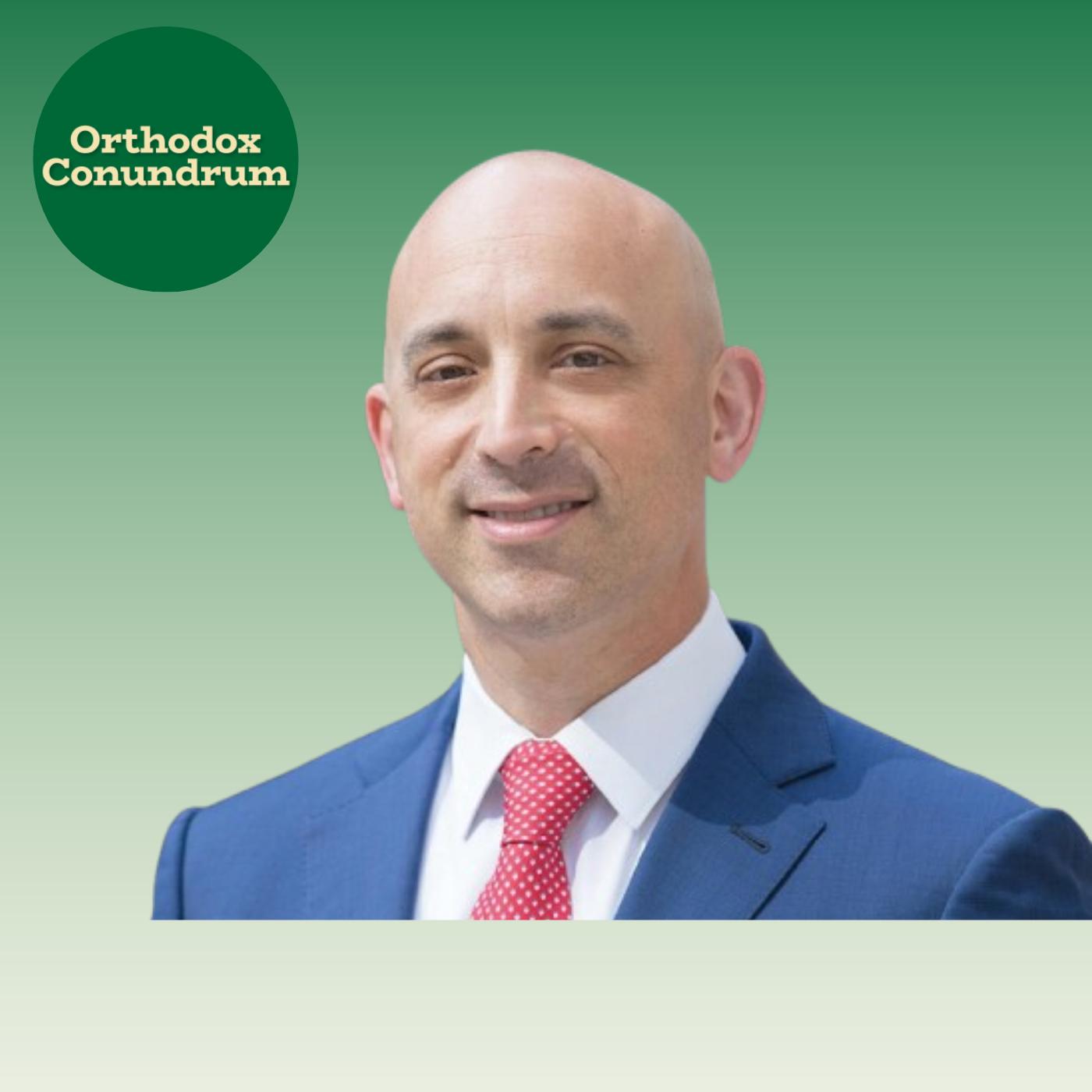
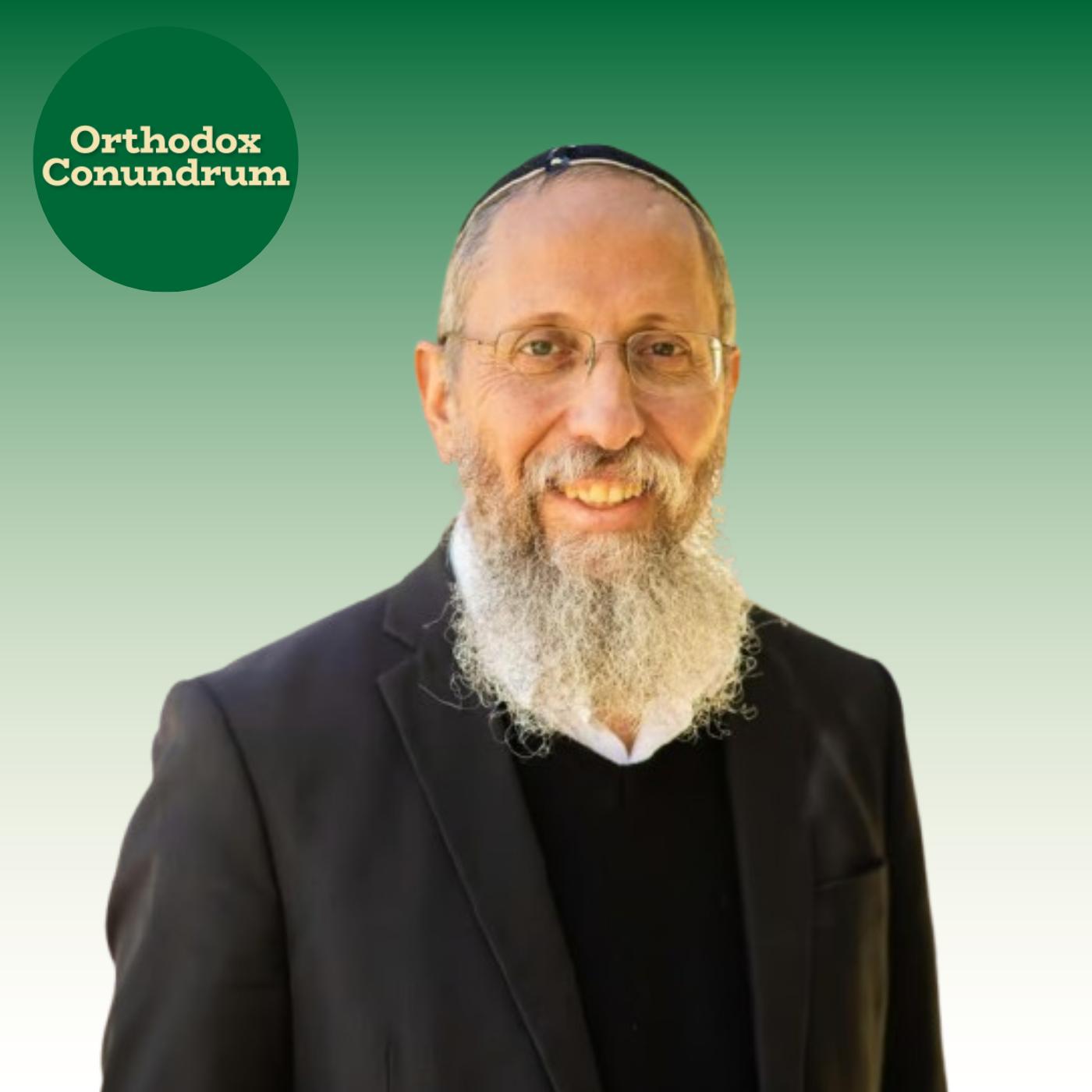
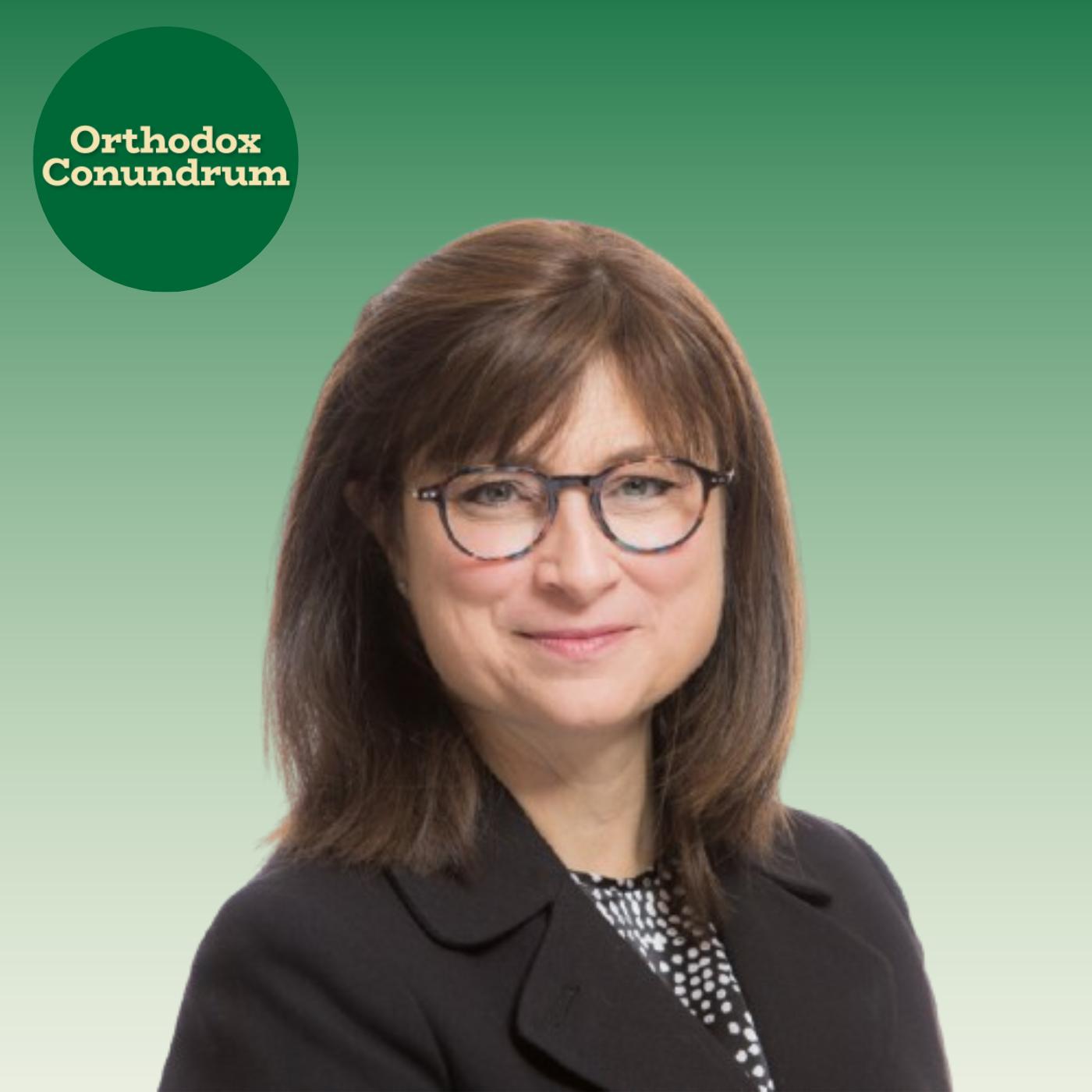
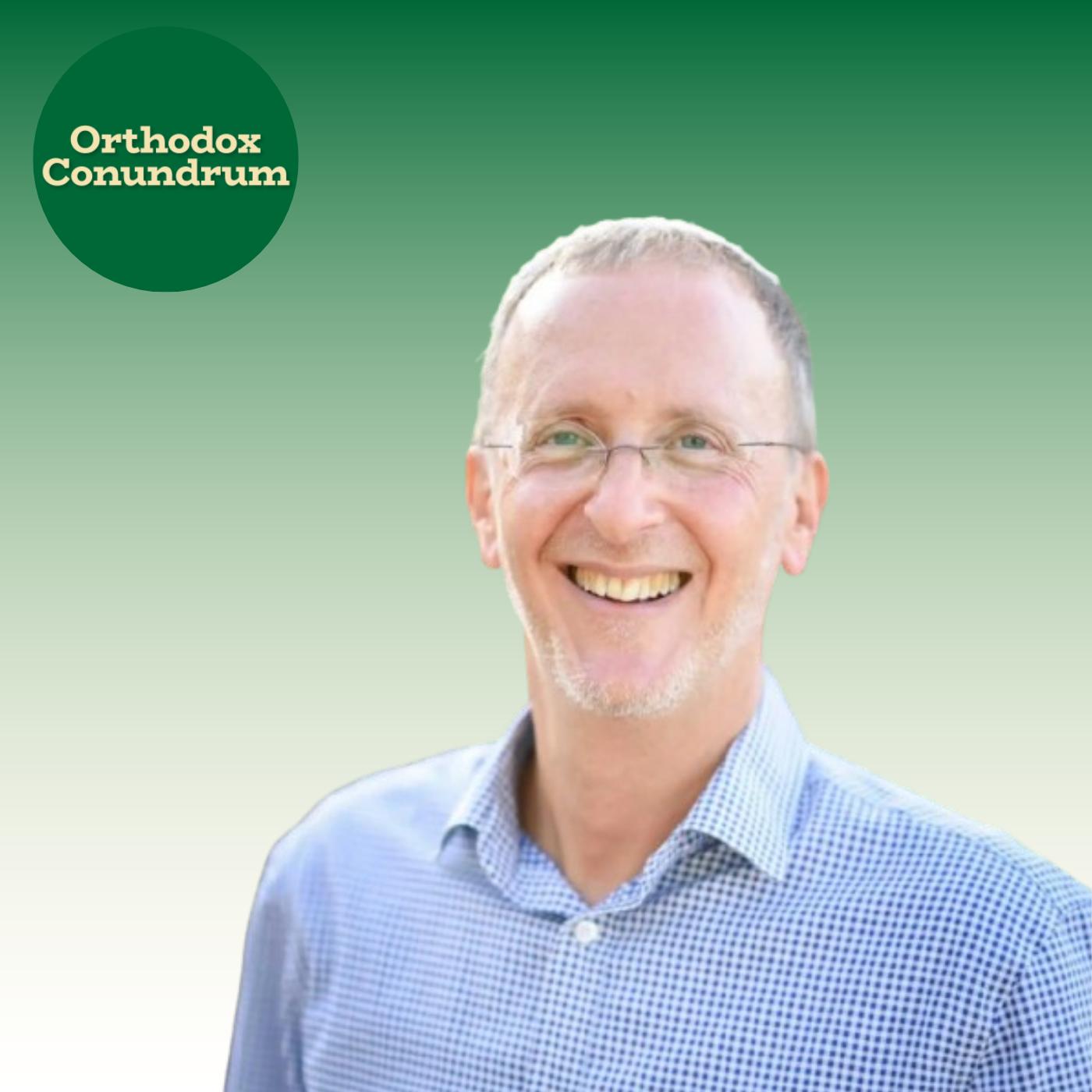
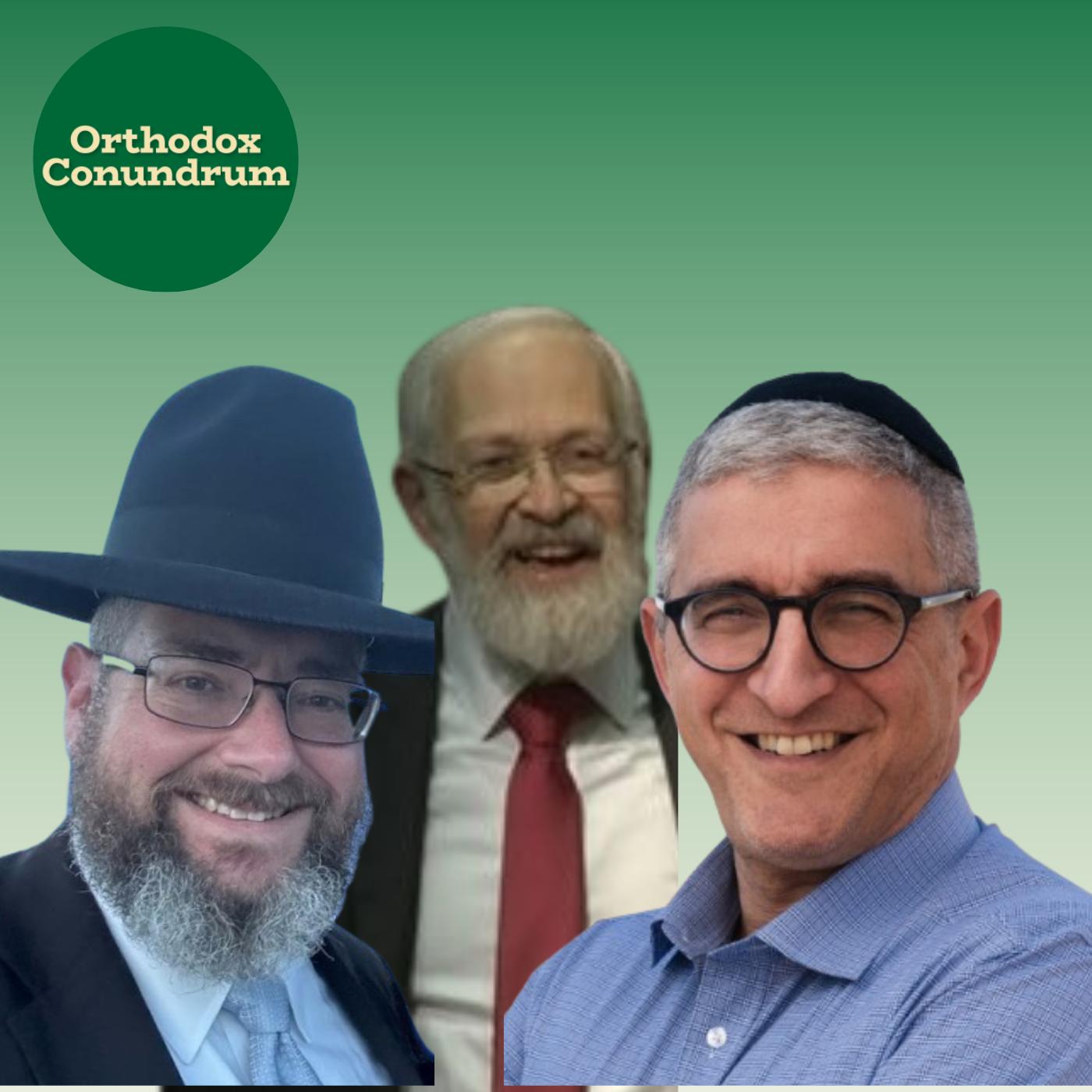
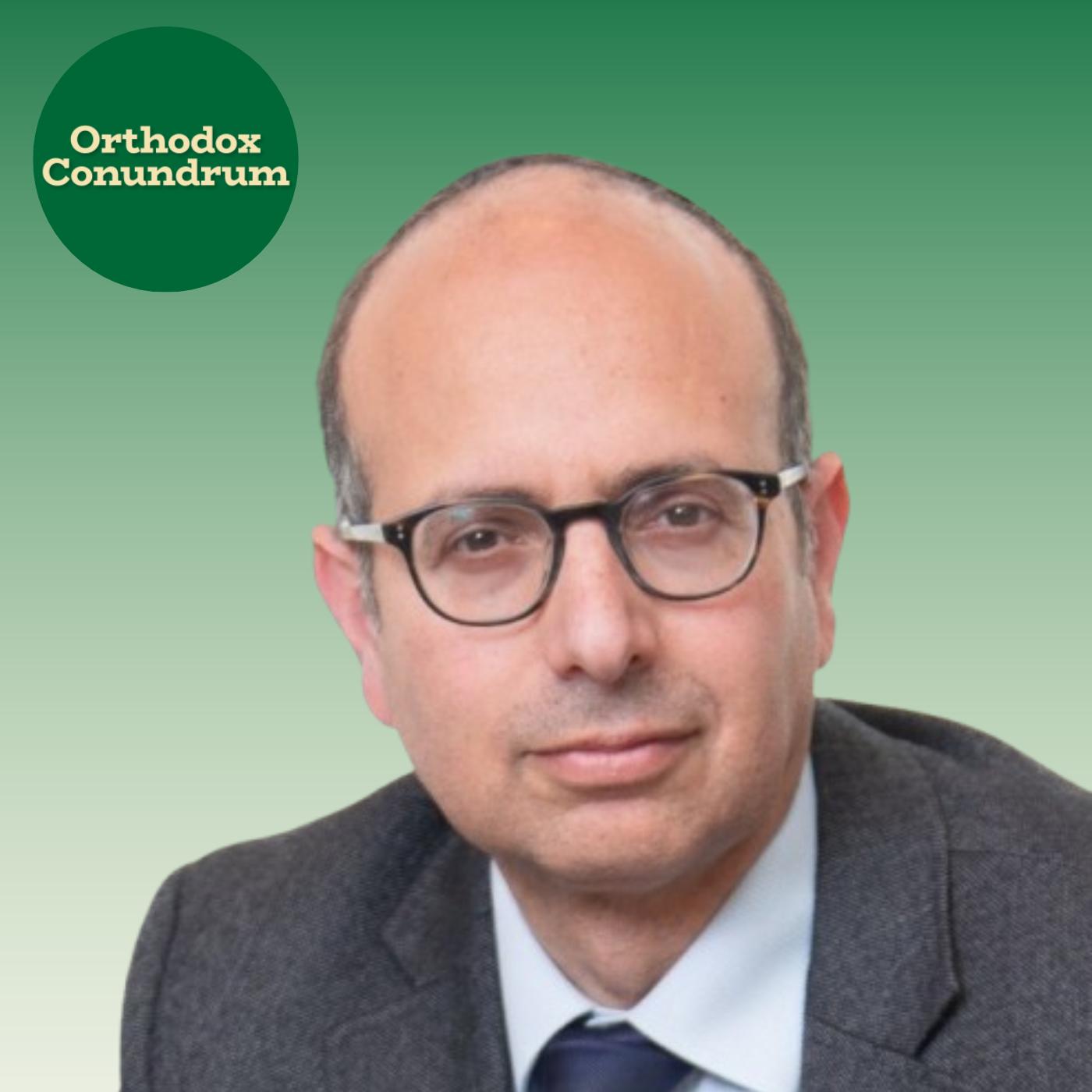
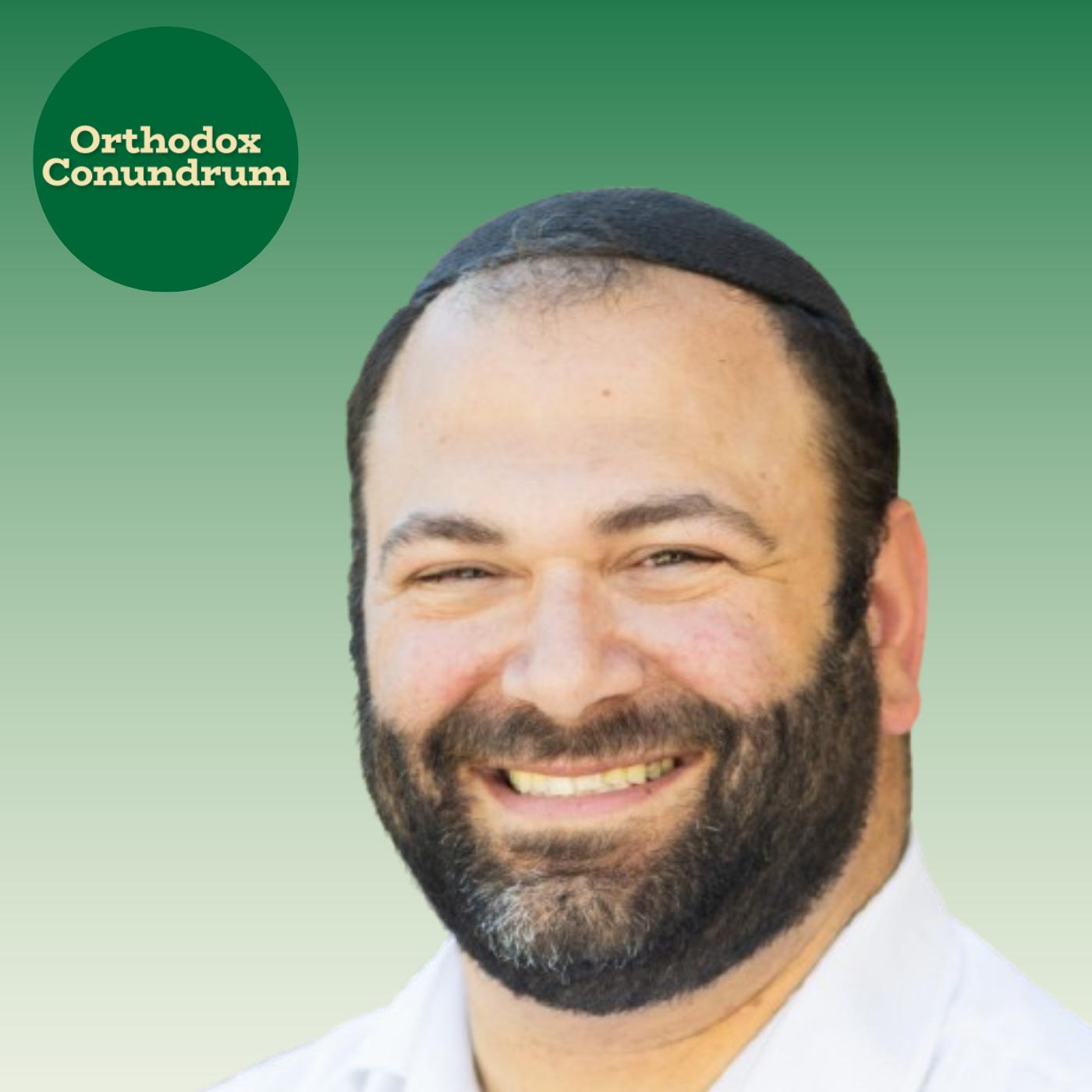
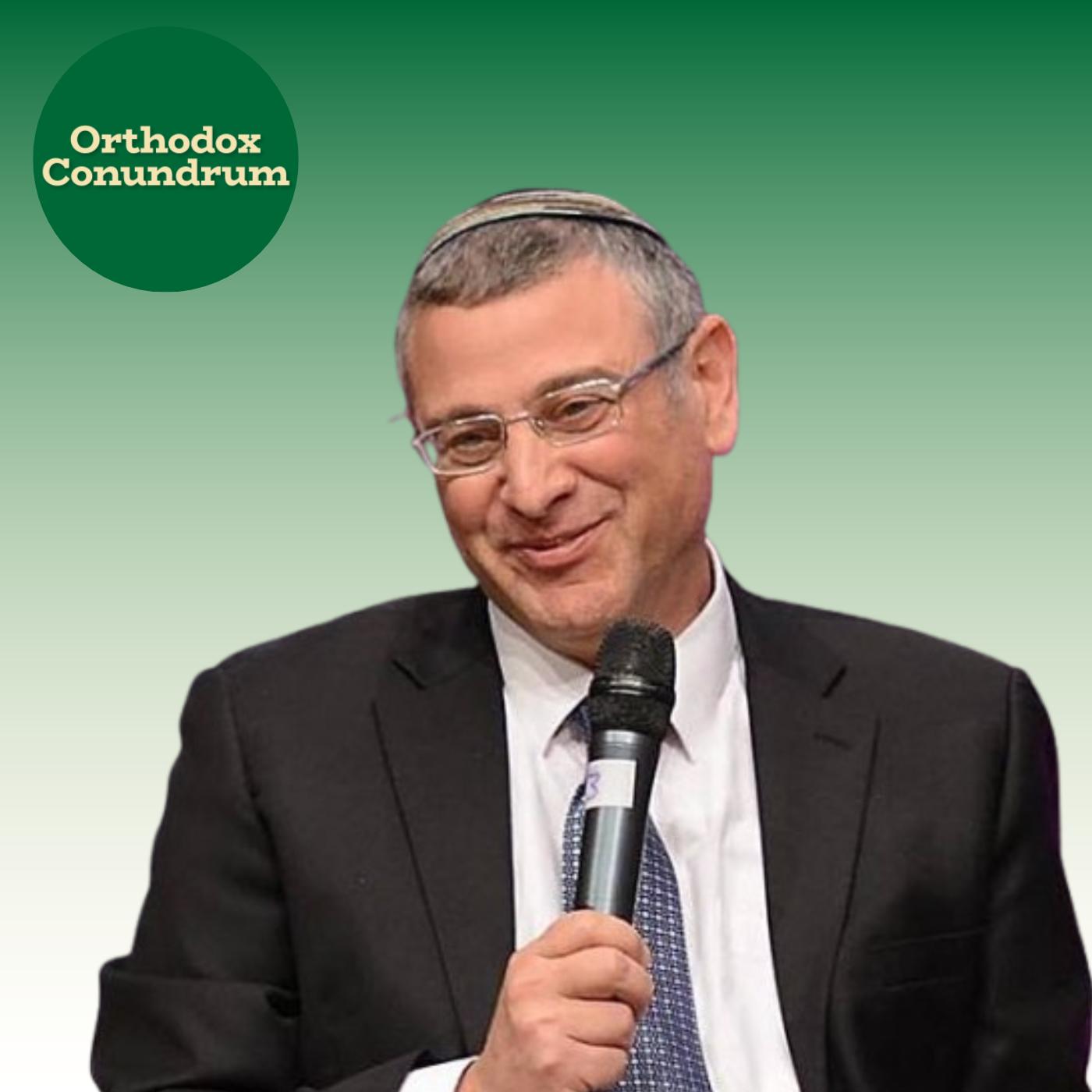
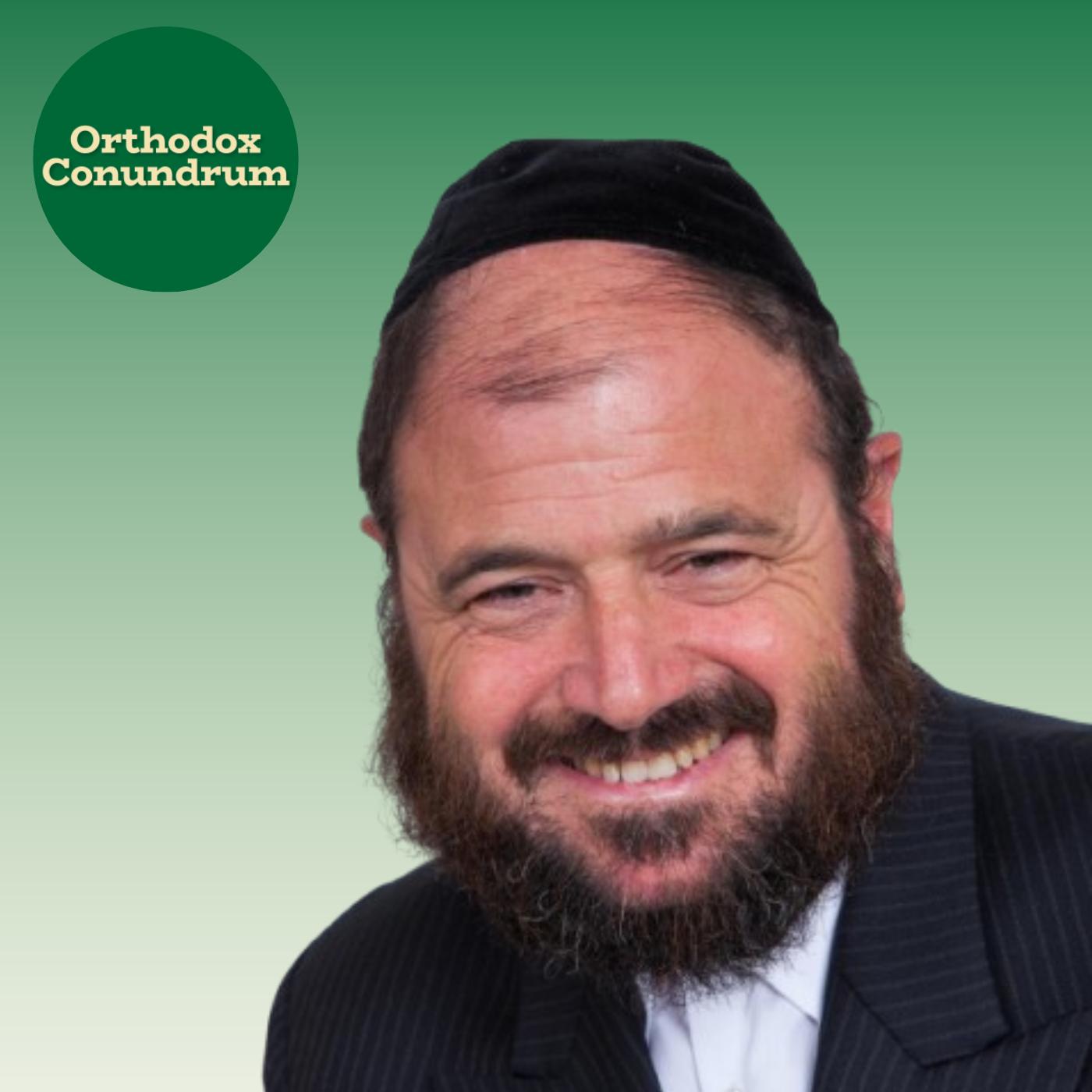
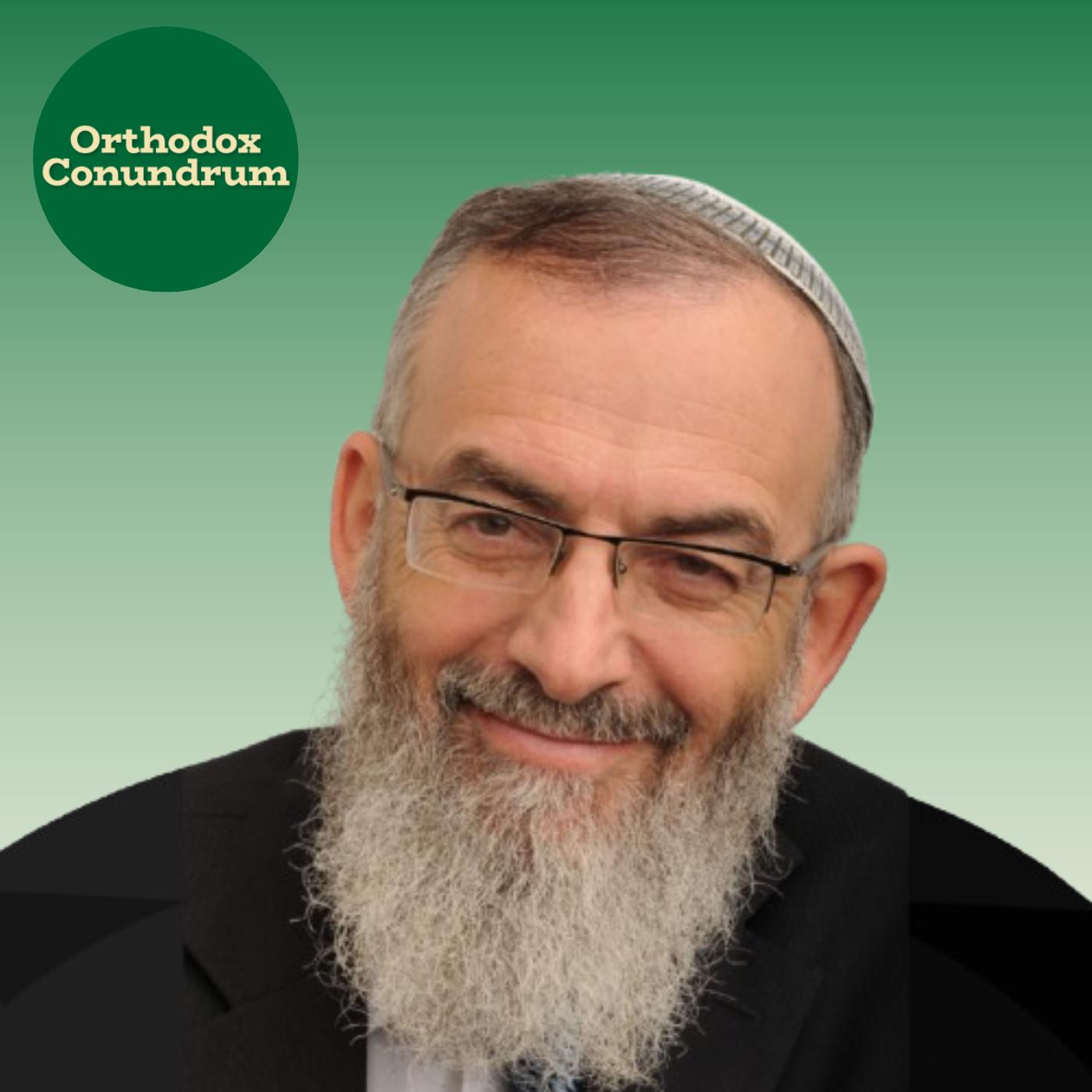
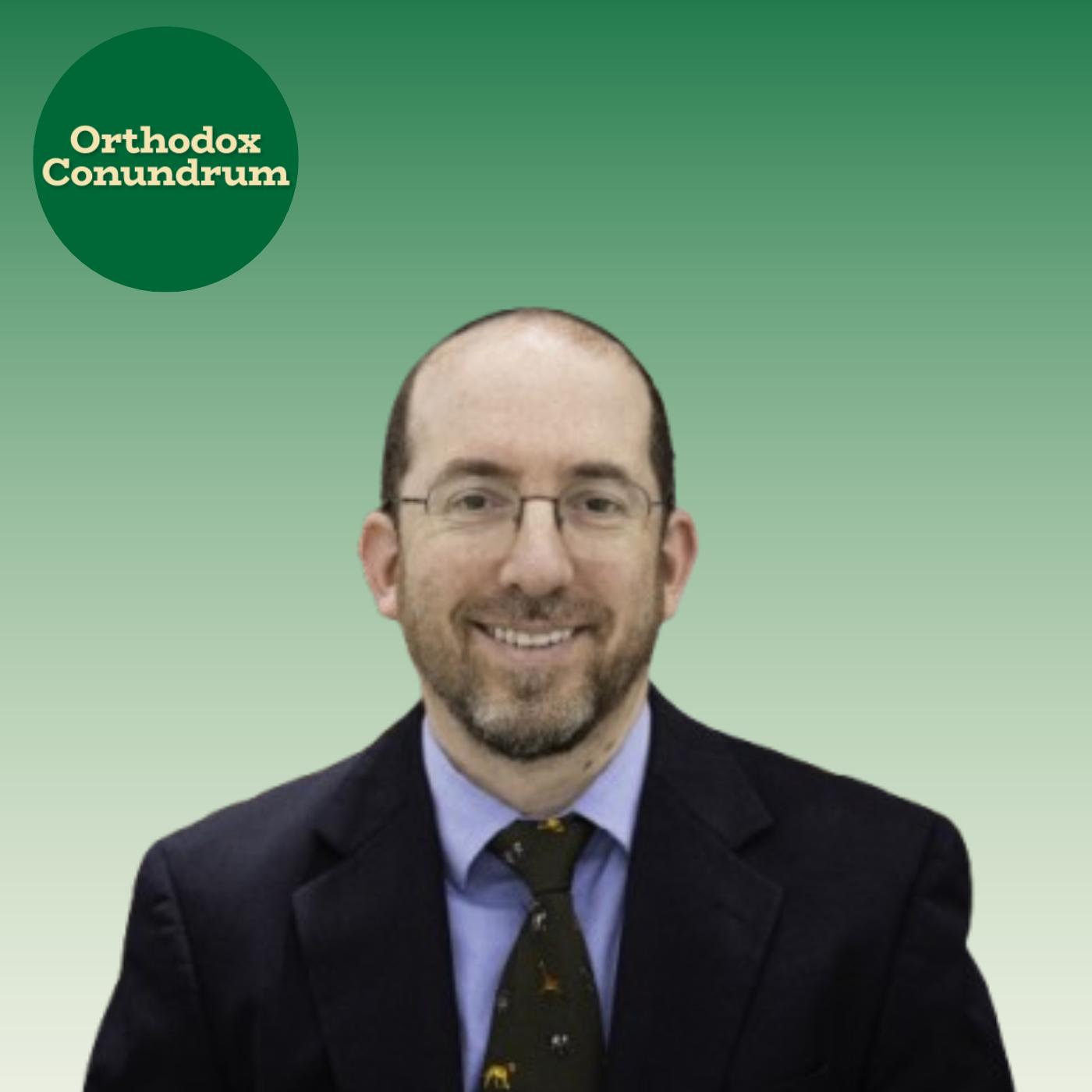
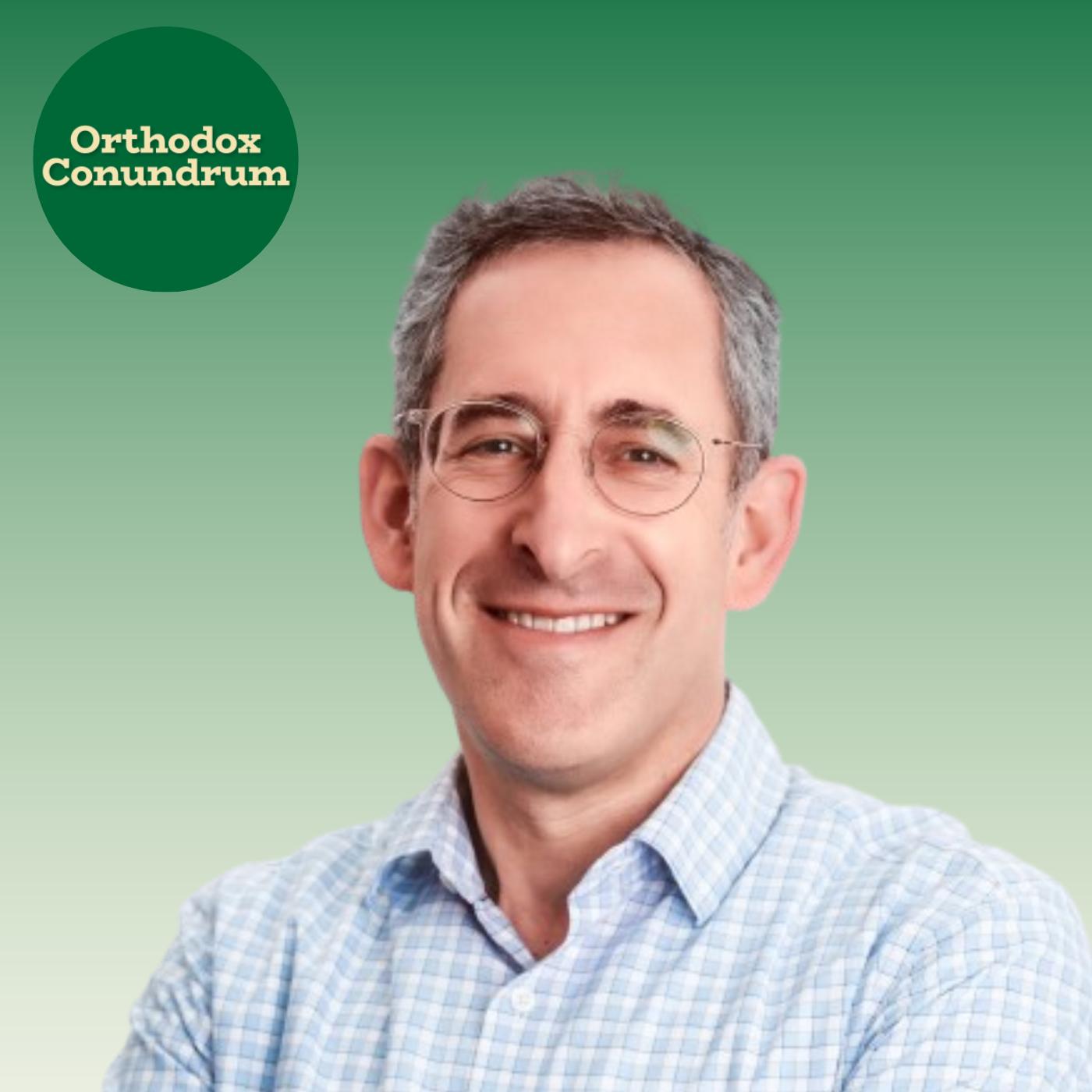
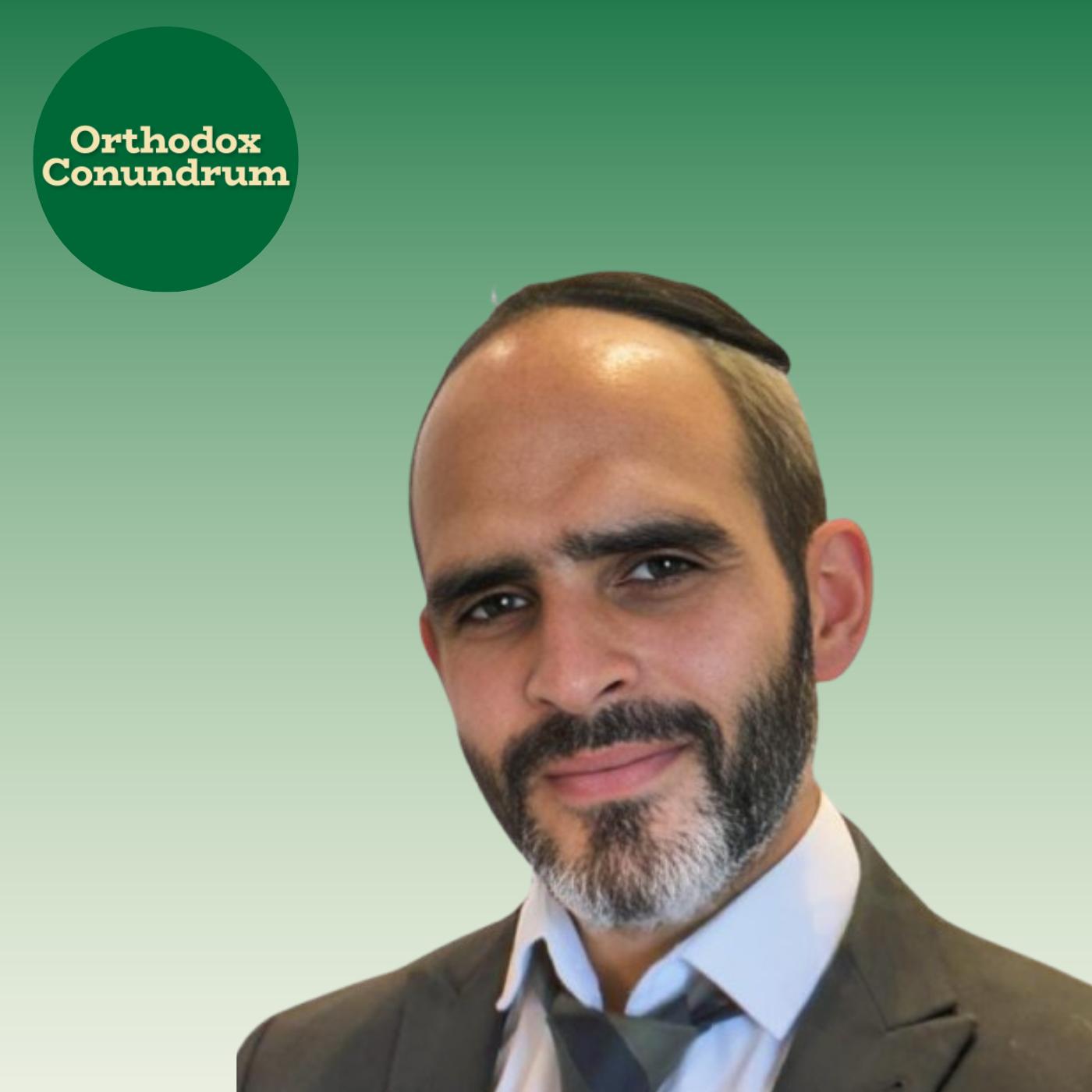
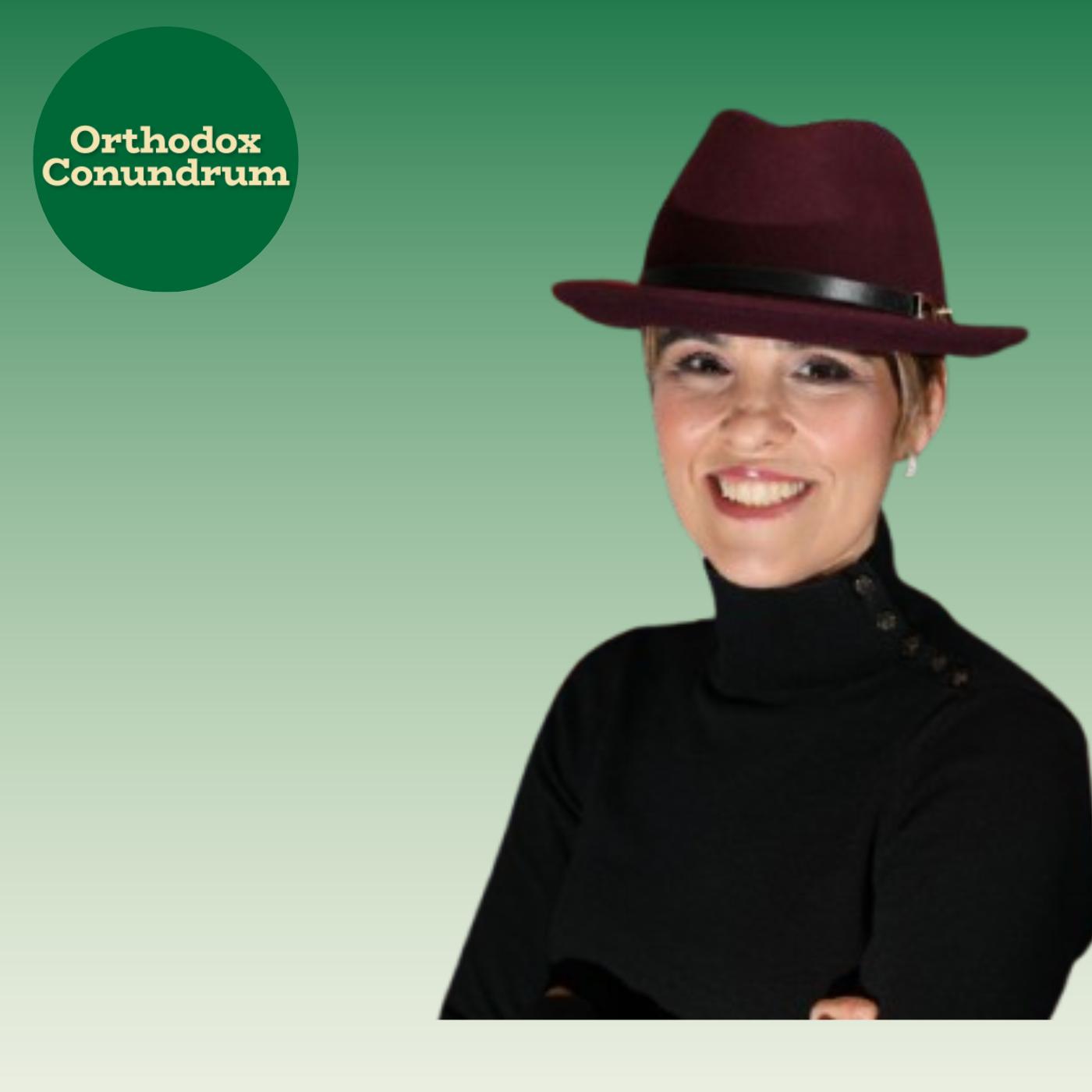
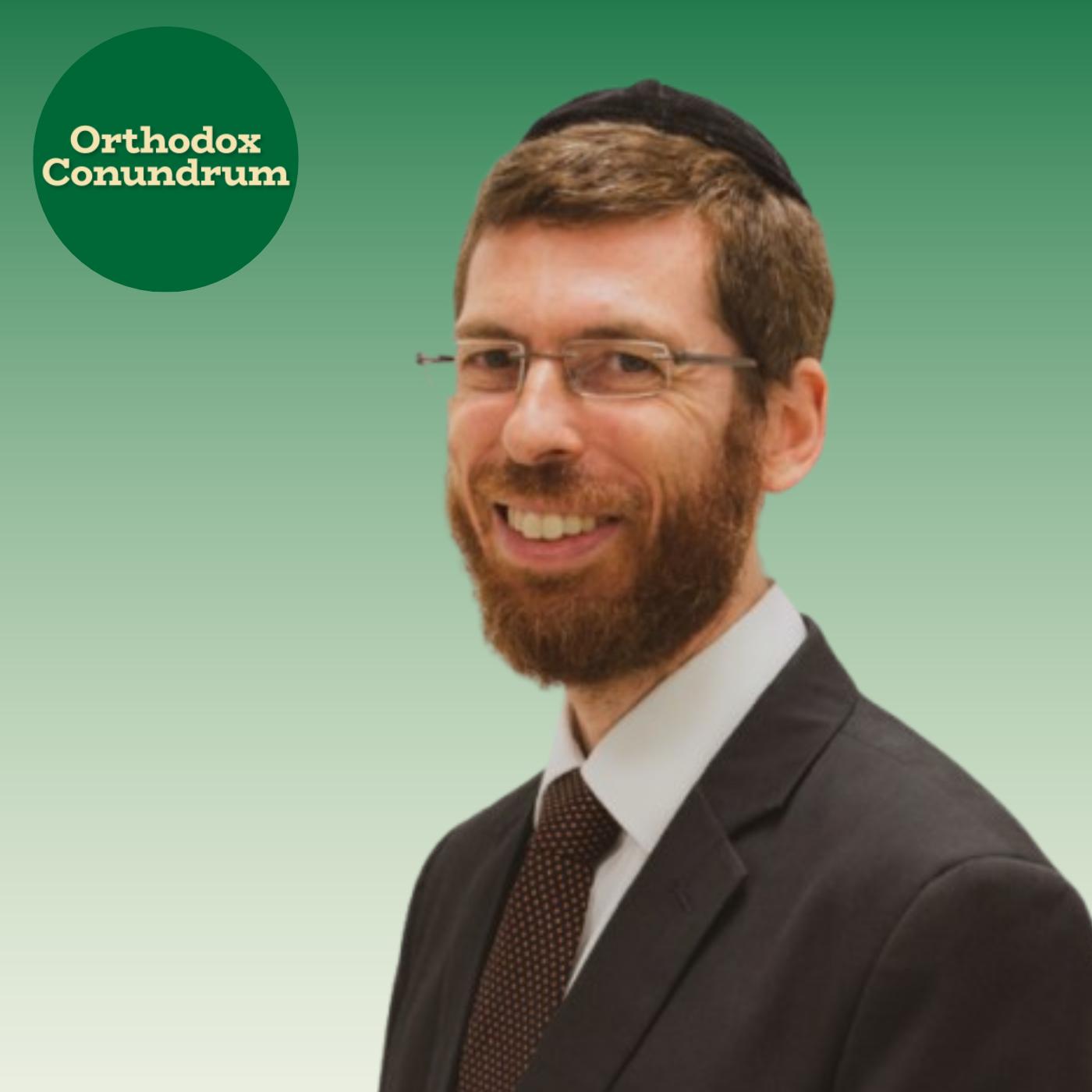
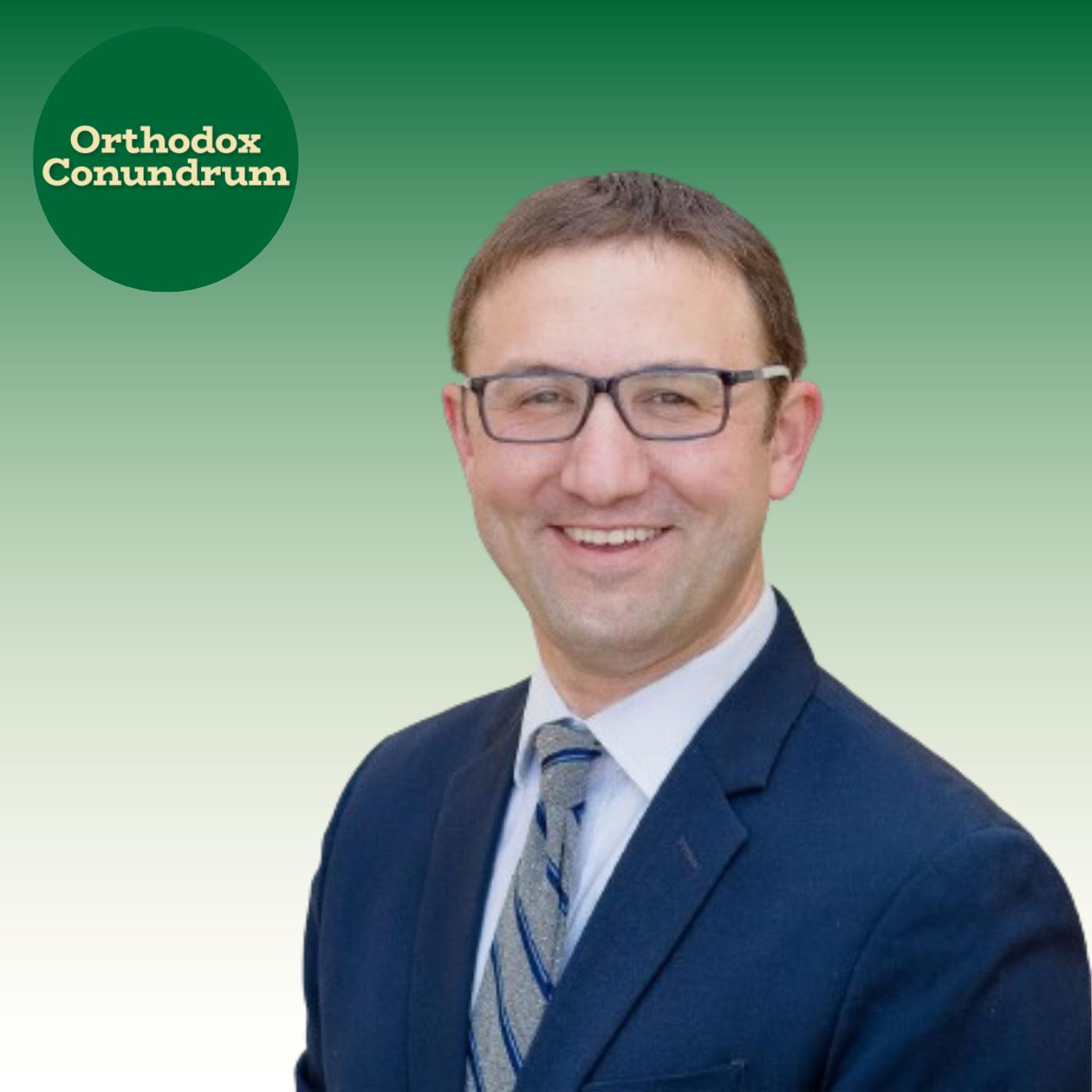
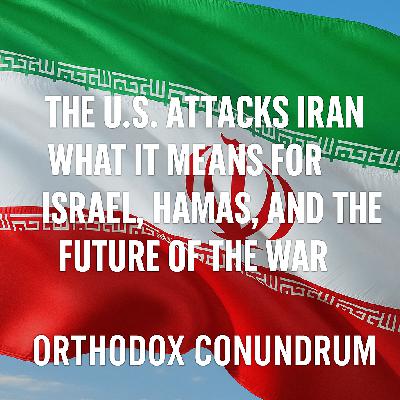
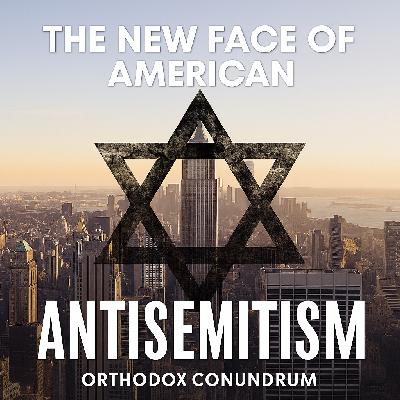




Shapiro falsely describes slavery as a white problem. In fact, non-white people were and in some cases still are involved in slavery.
Shapiro falsely claims that only white-skinned people believed in slavery in the days of George Washington
Complainants should never waste their time on victim advocacy groups in free societies. If a crime is committed against you immediately go to the police and the public prosecutor and sue them if they neglect their duties.
Rape is not about professional bureaucracy
also source of t'sehuva of chacham ovadia ty
can you give the exact siman, mishna of the tifferes yisroel ty